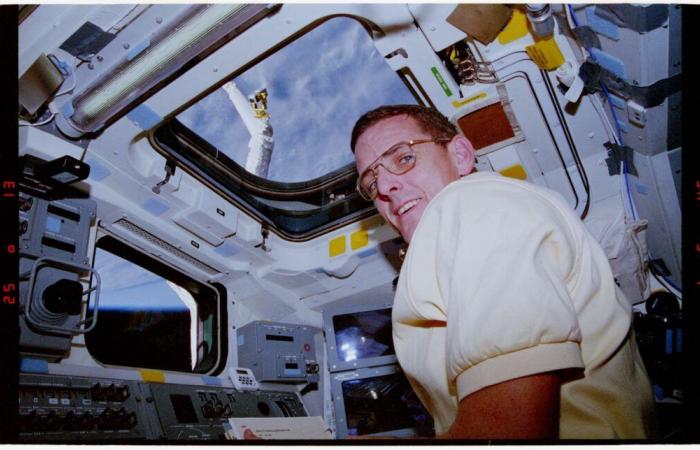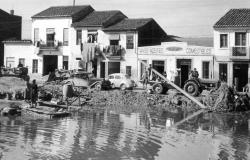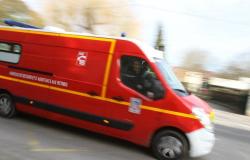William (Bill) S. McArthur was recruited by NASA in 1990 after an initial career as a test pilot for the agency and the Navy. Futura met him on the occasion of the day portesportes open to the technical center of theEuropean Space AgencyEuropean Space Agency in the Netherlands, which closed a week of congress of the ASE, the association of space explorers, where McArthur met many fellow astronauts.
Futura: You made your first STS-58 mission in 1993 aboard the Spacelab module (space shuttle extension), during which rats were dissected in orbit, which caused a scandal at the time. Tell us!
Bill McArthur : We had 48 white rats on the shuttle ColumbiaColumbia. It was for a biomedical research mission. We wanted to better understand the effects of microgravity on people and living organisms. We had an ethical obligation not to mistreat these animals, to treat them humanely. But dissection is the method to get information about them. Before the mission, there were concerns from organizations like PETA (People for the Ethical Treatment for Animals) who was against the experiment. The National Institutes of Health (NIH) has very strict regulations that require us to check the rats every 24 hours before takeoff [dans la navette, sur le pas de tir, NDLRNDLR]. This also delayed our flight. It had already been delayed twice because of the weather reportweather report and a technical problem and it had to be postponed a third time to exchange the rats with others whose health monitoring was more regular during the previous postponements.
Futura: During your second flight with the space shuttle STS-74 in 1995, you docked with the former Russian space station Mir. How do you see relations with Russia evolving?
Bill McArthur : I was a young lieutenant in the US Army. At that time, our biggest worry was the Soviet Union. But in 1994, when I began training for this joint mission with Russia, I thought it was the beginning of a fabulous era of international relations where the two Cold War adversaries were in conflict. becoming friends and partners. For more than ten years, I went to Russia to train several times. I lived there for a while and thought it was the golden age of international collaboration in space. What is happening today makes me sad for several reasons, firstly because of the suffering the Ukrainian people are enduring, the loss of many lives in Russia, and also because the future now takes us further away from any international collaboration. It's unfortunate, but I hope it's temporary.
Futura: In the 1970s, astronaut Tom Stafford and cosmonaut Alexei Leonov motivated the joint Apollo-Soyuz space mission (1975) between NASA and the Soviet Union, and cohabited in space well before the end of the cold war. Can we hope to benefit again today from the peacemaking role of astronauts?
Bill McArthur : I came to Estec on the occasion of the ASE annual congress [Association of Space Explorers, qui réunit tous les astronautes du monde, NDLR]which was partly founded by Tom Stafford and Alexei Leonov. We continue to promote peaceful collaboration in space and ensure that everyone who has experienced human spaceflight can join us.
Futura: During your third STS-92 flight in 2000, you flew with Pamela Melroy, now deputy director of NASA, whose director Bill Nelson also flew in space. Is it important to have astronauts at the head of NASA?
Bill McArthur : An astronaut at the head of NASA is good, but not necessarily necessary, it has already happened several times to have engineers. It's important to have astronauts in areas where they can influence important decisions, because we have a slightly different point of view. This is important for safety issues for astronauts, who may be in the hands of very brilliant people, but who have not flown. It's important that we are there to help gauge safety.
Futura: What are you doing today?
Bill McArthur : Now that I have retired from the NASA astronaut corps, I do a lot of public speaking and some consulting with companies in the aerospace industry in areas where I have experience.
Otherwise… I take care of my grandchildren and get on my bike as often as possible!






